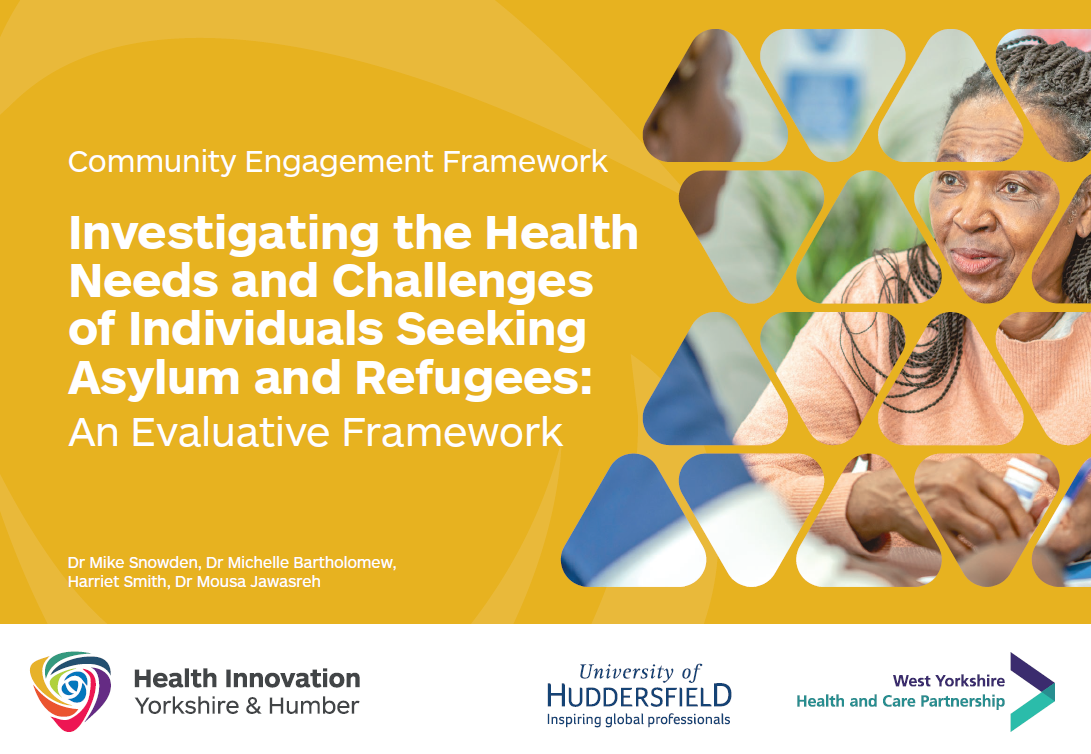Supporting the health needs of asylum seekers and refugees
Written by: Harriet Smith - 27th November 2023
In this blog Workstream Lead Harriet Smith shares her experience of working on a project to create a framework aimed at facilitating the seamless integration of asylum seekers and refugees into decision-making processes and service design, ensuring effectiveness and inclusivity.
In the past few years, I had the privilege of supporting Dr Llinos Jones, a respiratory consultant from Mid Yorkshire Teaching Hospitals NHS Trust, and her innovative approach to addressing challenges that prevented people with asthma, in particular in the local South Asian community, from accessing the services they needed. Her efforts to dispel myths and misconceptions surrounding asthma in this community not only shed light on the issues, but also paved the way for the development of a genuinely co-designed service that considered cultural and language barriers.
Following on from her successful work, in partnership with the West Yorkshire Health and Care Partnership, we decided to embark on a project to capture some of the learning from Dr Jones’ initiative. Dr Jones worked with local Community Champions to better engage with the South Asian community, individuals who were part of the local communities and understood the language and culture.
The primary goal of our work with the West Yorkshire Health and Care Partnership was to create a framework supporting any clinician, manager or commissioner interested in engaging with specific communities. Collaborating with the School of Human and Life Sciences at Huddersfield University, we successfully developed and tested this tool to better understand and assist individuals seeking asylum and refugee communities in accessing appropriate health care.
Access to good health care is a cornerstone of successful integration and participation in society and the economy. It plays a key role in the journey followed by individuals seeking asylum and refugees in their lives. However, accessing health care in an unfamiliar environment can generate significant stresses for individuals, and if this access is delayed can cause or exacerbate ill health. These experiences can also be aggravated by racism and discrimination, poor educational access, and low levels of host language proficiency.
These are particularly turbulent times for individuals seeking asylum and refugees and the role that health care delivery plays in their integration is not well understood. This project employs the Culturally Competent, Relevant, Accessible, and Authentic evaluative framework approach — a tripartite framework designed to ensure that the evidence generated from the evaluation meets the criteria of cultural competence, relevance, accessibility, and authenticity.
This framework aims to narrow this gap and enables a better understanding of how people who are new to the UK access health care. Furthermore, it allows health and care professionals to gain insight into the lived experiences of individuals as they engage with and access appropriate healthcare.
I hope that by developing this framework, the West Yorkshire Health and Care Partnership will continue to build on the fantastic work already underway to effectively integrate populations into decision-making and service design. With wider adoption of the framework, there is an opportunity to expand the scope, introducing additional training and support tools, and ensuring that patient and public engagement becomes a standard practice.
Dive into the report to discover more about the core principles of the framework.

